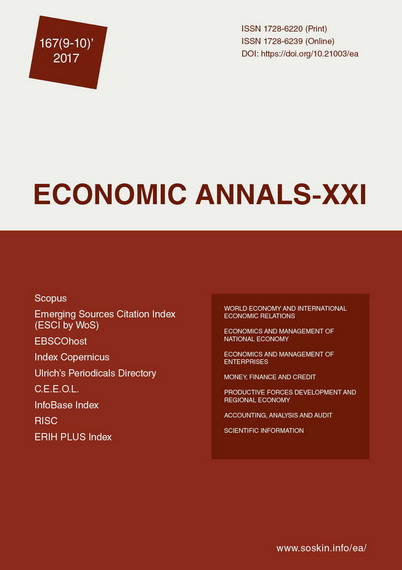Participatory budgeting as a tool for the implementation of the fiscal policy of regional development of Ukraine
Participatory budgeting as a tool for the implementation of the fiscal policy of regional development of Ukraine
Author(s): Halyna Voznyak, Andriy PelekhatyySubject(s): Economy, Public Finances, Fiscal Politics / Budgeting
Published by: Institute of Society Transformation
Keywords: Fiscal Policy; Participatory Budget; Decentralisation; Local Budget; Development of Regions;
Summary/Abstract: Introduction. Ukraine’s aspiration to implement the model of sustainable economic development and European standards of living has led to an increase in attention to the mechanisms of formation and implementation of the country’s fiscal policy to develop its regions, which is characterised by an excessive degree of centralised budgeting, lack of unified standards for the provision of high-quality public services, instability of revenue sources of local budgets. Such trends have led to initiation and implementation of systemic socio-economic and legal reforms with regard to all public policies. One of the main reforms is to provide decentralisation of power for the adoption of budgetary decisions. Under such conditions, it is impossible to ensure fiscal independence of local budgets and introduce a new budgetary regulation mechanism without involvement of competent public opinion in management and control in different areas of finances. The purpose of the article is to analyse modern fiscal policy tools which impact the formation of the revenue base of local budgets, the amount and direction of expenditures, as the implementation of such tools can promote transparent use of public funds. Results. The authors of the article have considered the essence of the participatory budget, singled out its advantages and risks and determined conditions for its effective functioning based at exploring world and European practices (focusing on France, Spain and Poland). The article deals with modern domestic practices in the implementation of participatory budgets. Also, participatory budgeting in the big cities of Poland and Ukraine were compared. It is argued that improvement of the fiscal policy related to the development of regions by means of introduction of a participatory budget will promote a transparent distribution of budget funds increasing the efficiency and performance of local self-governing bodies. Among the potential dangers of participatory democracy in the budget process, the article highlights populism, loss of time and inability to conceal deficiencies in governance, overestimating citizens’ expectations in the face of limited resources and limited freedom of action of local self-governing bodies in matters of budget decision-making. Conclusions. The authors have proved the need to introduce participatory budgets into the practice of local government because such a new technology will promote socio-economic development of regions and increase the publicity of local authorities.
Journal: Економічний часопис - ХХІ
- Issue Year: 167/2017
- Issue No: 09+10
- Page Range: 53-56
- Page Count: 4
- Language: English

